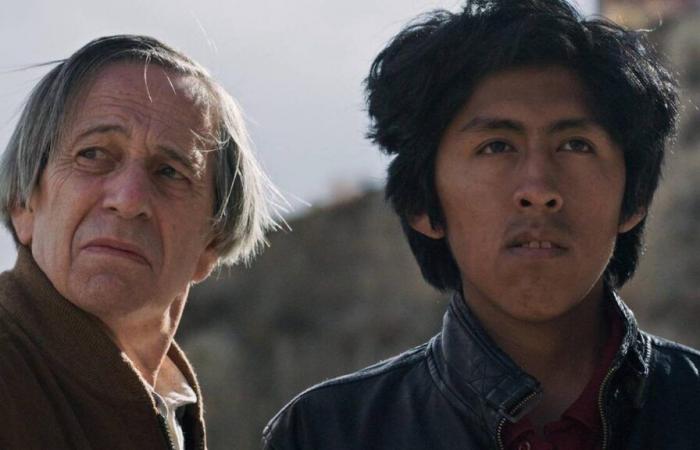Before the cinema, Franklin was one of the 3000 shoe shine (shiners) who roam the streets or who wait, for hours, sitting on a small wooden stool, for a dusty shoe to present itself. He was also one of those invisible people from La Paz. “I started when I was 10,” he says. At home, things aren’t going well. His parents argue a lot, there are money problems. So when a friend suggested he go to work, Franklin was motivated: The neighbors made me a small box to put my creams and brushes in and I learned on the job.”
“People are afraid of us”
This work, synonymous with survival, is accompanied in Bolivia by a heavy stigma. “I was very stressed about the release of the film,” confides Franklin. I was afraid of being harassed again. During filming, I continued to wax in the street, where people judged us, insulted us. They are afraid of us.” This destiny could have remained in the shadows, if a wild casting had not turned his life upside down.
When director Vinko Tomicic began filming in 2018, Franklin was 14 years old. The scenes leave a lot of room for improvisation, “to allow him to express himself freely, drawing on his experiences”. The objective: “Capture the raw reality of these street children,” explains the Chilean filmmaker. This choice plunges the main actor into painful memories. “Certain scenes were difficult to shoot, I had a hard time telling myself that everything was fake because they were so similar to what I experienced, I don’t know how I managed to do it.” The harassment sequences, in particular, were particularly trying.
For the young boy, school quickly turned into a nightmare when he started working. “I would study in the morning and work in the afternoon, but I actually didn’t go to class much. I had no friends. Those who had seen me polishing in the street told others that I was dirty and that they should not talk to me, they hit me, made fun of my clothes, my appearance, the way I spoke.” He pauses, lowers his eyes as if ashamed: “I wanted to kill myself.” Franklin changed schools five times.
A work of public interest so that discrimination disappears
This experience shines through in the sincerity of Franklin’s gaze on the screen, in his bent shoulders, his questioning and submissive air. This authenticity makesThe dog thief a work as much social as artistic. The aesthetic of the film is marked by naturalistic photography and a hand-held camera. Thanks to his choices, the director was able to capture the violence of the daily life of the polishers by creating scenes of rare intensity, where the border between fiction and reality blurs.
In a Bolivia in economic and social crisis, the release of the film shines the spotlight on these invisible people to question social contempt and systemic racism in the country. And Franklin Aro is the one making their voices heard: “I hope it helps other kids like me when they see I made it through.»
Today, the Bolivian dreams of an international career. “I was told that the doors were going to open for me and I am ready,” he says, more calm. But before heading back to castings, he is determined to bring this film to life so that “all polishers are proud of who they are and that discrimination disappears one day. This film tells the story of all of our lives: the mockery, the rejection, but also our strength. It’s not just cinema, it’s our story.”
Screening of “El ladron de perros” as part of the Filmar en América Latina festival, Cinéma du Grütli, Geneva, Sunday November 24 at 4 p.m.
Also not to be missed:
Saturday November 23 at 2:15 p.m., at the Cinémas du Grütli, exceptional screening of restored short films by Cuban filmmaker, painter and writer Nicolas Guillén Landrian (1938-2003), who died in exile after being imprisoned by the Castro regime.






